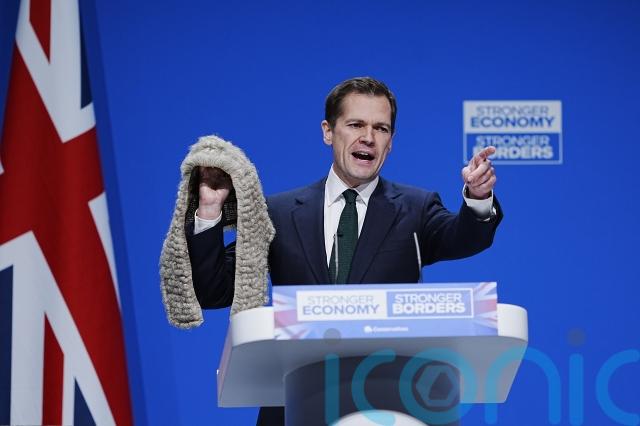
A former president of the Supreme Court has warned of the dangers of the politicisation of judges after the profession came under attack from a senior Conservative politician.
Baroness Hale of Richmond spoke out after shadow justice secretary Robert Jenrick pledged to put ministers back in charge of judicial appointments, claiming the current system had allowed “political activists” on to the bench.
“I’m really worried about the attempts to politicise the judiciary,” Lady Hale said.
“At the moment judicial appointments do not depend on party politics.
“I had two of my appointments from a Tory lord chancellor, two from a Labour lord chancellor, and two from what we now have, which is an independent, merit-based commission.
“I think this is much the best because it takes politics out of it altogether.
“I did not know the party politics of my colleagues, a very good thing too.
“The idea that politicians should once again become seriously involved in judicial appointments seems to me to be a bad thing.
“The idea that politicians could sack judges is a breach of a constitutional principle that we have had since 1701 that the judges hold office during good behaviour and senior judges can only have their positions taken away by an address from both Houses of Parliament to the Crown.
“That has happened once since 1701.
“These attacks on the independence of the judiciary are really serious, and we have to be very bothered about them, it seems to me. Please be bothered about them.”

During his speech at his party’s autumn conference in Manchester, Mr Jenrick brandished a judge’s wig.
He claimed to have “uncovered dozens of judges with links to open borders charities, who take to social media to broadcast their open borders views, who spent their whole careers fighting to keep illegal migrants in this country”.
Mr Jenrick added: “They dishonour generations of independent jurists who came before them, and they undermine people’s trust in the law itself.
“Judges who blur the line between adjudication and activism can have no place in our justice system.”
The former cabinet minister also criticised the Attorney General, Lord Richard Hermer, for his work representing defendants in terror cases, comparing him to “one of those infamous mafia lawyers of yesteryear” who “always chose a particular type of client”.
Lady Hale served as president of the Supreme Court from 2017 to 2020.
She rose to national attention when she delivered the unanimous judgment of the court that then prime minister Boris Johnson’s decision to suspend parliament for five weeks was unlawful.
During an event at the Cheltenham Literature Festival to discuss her new book, she also spoke in favour of the European Convention on Human Rights (ECHR) and said it was being “misrepresented” and that to leave it would be “short-sighted”.
“The concern that a lot of politicians are expressing is almost solely related to migration,” Lady Hale said.
“The alleged inability to deport foreign national criminals – there is no evidence to support that.
“There is no evidence that deportations of foreign national criminals have been seriously impeded by decisions of the courts and tribunals in this country.
“The European court has not said that if prison conditions in the foreign national home country are worse than here, you can’t deport them.
“They have not said that.
“They have not even said that the standards we might expect of prisons in Europe can also be projected on to prisons elsewhere in the world where you are sending aliens away.
“We are allowed to send aliens away.
“It’s misrepresented, a lot of it.”
Lady Hale said she did not think the ECHR was being “seriously abused” in asylum cases, but if it was, Parliament could legislate.
“Parliament can pass a law saying the rights of respect to family life will be overrun in certain circumstances. They can be very definite about it,” she said.
“That is likely to be held compatible with the convention.
“But if it’s not held compatible with the convention, that does not change the law.
“It leaves it up to Government and Parliament to decide whether to change the law.
“If it goes off to the European Court of Human Rights in Strasbourg, then Strasbourg may find it incompatible, or it may not.
“But if it finds it incompatible then there are still arguments to have with the Council of Europe.
“The idea that you can pull out to deal with one very specific problem, which I think is being greatly exaggerated, does throwing out all the good that the convention has done, and we could have plenty of examples of the good the convention has done.
“It seems so short-sighted. I’m sorry, I’m really, really worried about it.”
Subscribe or register today to discover more from DonegalLive.ie
Buy the e-paper of the Donegal Democrat, Donegal People's Press, Donegal Post and Inish Times here for instant access to Donegal's premier news titles.
Keep up with the latest news from Donegal with our daily newsletter featuring the most important stories of the day delivered to your inbox every evening at 5pm.